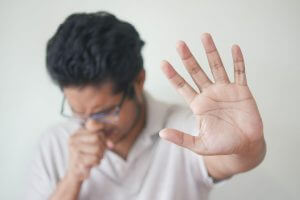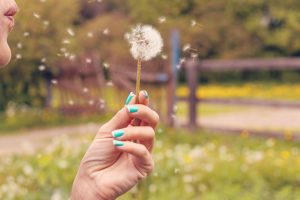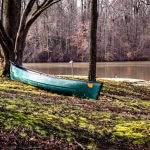
By Julia Olivas
Allergies come with all sorts of unpleasant symptoms that can ruin an otherwise perfect spring or summer day. From digestive problems to headaches and difficulty breathing, allergies are something many people suffer from, especially during the springtime. However, they can flare up at any point throughout the year. While there is no cure for allergies, you can treat and control symptoms. Everyone likes spending time outside, especially when the winter finally ends and you can finally open your windows and let the fresh air into your home. However, that fresh air comes with some allergens that can cause you to sneeze quite a bit.
Whether you enjoy spending time outdoors in your home garden, going on hikes with your pooch, or laying in the sun to destress and improve your mental health, it can be difficult to avoid the allergens that lead to sneezing, coughing, and itchy eyes. However, you can find ways to protect yourself from allergies and prevent them from flaring up in the first place. To prevent allergies, you’ll need to make a few minor changes in your life. Here are ways to protect yourself from allergies.
Contents
1. Consider Your Indoor Environment
While allergies typically occur outside, they can also flare up when you’re relaxing at home. Many people have allergies throughout the year, so it might not have anything to do with outdoor allergens. Instead, you could be allergic to dust, mold, pollen, and pet dander, making it difficult to find peace at home. Luckily, there are ways to allergy-proof your home, including:
Keeping your home clean:
Keeping your home clean will remove any dust and pet dander that might be causing your allergies to flare up. You should vacuum your home weekly, but if you have a pet you might be allergic to, you should vacuum at least twice a week to remove their dander from the carpet, flooring, and furniture.
When cleaning your home, pay close attention to areas where your allergies flare up the most. For example, if you find yourself sneezing more in the bedroom than in any other room, try to see if you can determine the cause. There might be something in the room that you’re allergic to, or you haven’t reached all the dust.
Using air purifiers
Air purifiers are a great way to get rid of dust and pet dander while reducing the effect of air pollution and mold in your home. HEPA filters can also get rid of odors from smoke, food, and pets. Air purifiers work by purifying the air through a variety of processes, depending on what type of purifier you have. Maintaining an air purifier is relatively simple. If you have a HEPA filter, you’ll just have to replace the filter every three to six months to ensure your home has the healthier quality air free of allergens.
2. Take Allergy Medicine
The best way to keep your allergies in check is to take daily over-the-counter allergy medicine. However, if your allergies are bad enough and impact your quality of life, you can get a stronger allergy prescription from your doctor.
It’s always best not to wait too late to take your allergy medicine. If you suffer from allergies due to pollen, you should take your medicine before you go outside and give it enough time to start working. Many people take a 24-hour allergy pill in the morning every day to ensure they won’t have to experience any of the dreaded symptoms that come with allergies.
In most cases, allergy medicine will be enough to prevent allergy flare-ups throughout the day, but if you plan to spend more time outside than usual, you might want to speak to your doctor about your options.
3. Check Pollen Count

Nobody wants to be stuck inside all day when the weather is nice. When the temperature outside finally gets comfortable after a long winter, people will find any excuse to get outside. If you suffer from seasonal allergies, you’ll need to avoid pollen outdoors as much as possible. You can check the local weather in your area to learn about the pollen count for the day or at a specific time.
If the forecast predicts high pollen counts, you can start taking allergy medication before leaving the house to make you more comfortable when you’re outside. Additionally, closing doors and windows at night when there is a high pollen count can prevent you from experiencing allergy symptoms the next morning.
Also, if you are an avid camper, it may be best to check the weather of your camping location and pack allergy medicine in case something in the area flares up your allergies. Camping is one of the best parts of summer, spring, or fall so you want to ensure you will feel your best the whole time.
4. Try Supplements
Allergies can weaken your immune system, making it more likely for you to get sick. Additionally, since allergies and immune systems are linked, treating the immune system is a great way to prevent allergy attacks. Supplements can help target your body’s immune system to prevent allergy flare-ups before they start. Some common supplements people take for allergies are probiotics, vitamin D, and Stinging Nettle.
5. Eat Honey
Local honey may help prevent allergy attacks and reduce the severity of the symptoms. Honey made in your home state contains trace amounts of the same pollen that causes allergies. However, eating the trace amounts in honey won’t cause an allergic reaction. Instead, eating local honey may teach your body to tolerate pollen over time.
Understanding Your Allergies
Allergies are unpleasant. Many people have allergies and know what they’re allergic to, while others experience allergies without figuring out the cause. If you get allergy flare-ups in the spring and summer but don’t experience any allergies in the winter, it’s likely a pollen allergy. However, if you have allergies year-round, you might have a pet dander allergy or mold growth in your home.
If you’re not sure what you’re allergic to, you can always schedule a visit with your doctor to perform allergy testing. Your doctor can also help you form a treatment plan if your allergies are affecting your quality of life or interfering with daily activities. In addition, learning the types of allergens that affect you most can help you find ways to prevent them from ruining your day.
Julia Olivas graduated from San Francisco State University with her B.A. in Communication Studies. She specializes in content writing and marketing and loves working with teams to produce quality content for their blog.
In her free time, she enjoys spending time with her pup Ruby, gardening, camping, and cooking.



Allergies can be a problem for many people, especially when traveling to new areas. Like you said, eating honey that is locally sourced, is a great way to combat allergies your body might not be used to while you are traveling.
I agree with these. I am considering getting an air purifier for my home. With so many pollutants in the air it helps to have something that can filter allergens and volatile compounds.
I need to show this to my partner, the summer pollen really affects her. Thanks for sharing!
As a child, I suffered from rhinitis, and I had trouble remaining indoors for extended periods of time.I did my best to avoid going to places that aren’t well kept. My mother was very particular about keeping the house as dust-free at all times.
I suffer from allergies all year long, and take allergy medicine often. The air purifier also helps relieve some of the stuffiness I experience
great advice! i think honey might be a great option to prevent it if you are not allergic to it in the first place. I used to have pollen allergy when I was little and I was allergic to honey because of it (the allergy vanished completely after treatment and adulting done at the same time, I am not sure what exactly helped)
This post couldn’t come at a better time, my mother-in-law is suffering but I think she believes it’s just dusty. I’ve heard that about stinging nettles, luckily I have some dried herb in the cupboard, I’ll make her a tea and see if it helps.
Eating honey helps prevent allergies? Wow. I’ve learnt something new today. Thats Amazing.
I have to take allergy meds for mine but we also have an air purifier to help.
Allergies are such a drag and so difficult to handle. Also, they might change over the years so that even if you find a cure, it might be effectless the next season 🙁
Those are some great points and will keep those in mind. It’s better to know these things and prevent future allergy problems.
These are some great tips to protect yourself from allergies. Thanks for sharing.
I didn’t know Honey can help with allergies. My nose is sensitive to dusts and i just pop Claritin. I need to get my air purifier and resort to natural remedies.
I haven’t hear of Stinging Nettle before. I will research it. Thanks!
Ooohhhh…I didn’t know this about honey on allergies. Thanks for sharing about it.
I have no allergies which isn’t really an excuse to not clean our home. People with allergies are extra sensitive so its best to be mindful of them.
Wow I’d never heard of eating honey, air purifiers have been a game changer in my house.
AIr purifiers are great. My son has allergies so we run one in his room. It’s very helpful.
Great information! My husband suffers from allergies and we try to do all from your list. Air purifiers are quite helpful
I’ve never heard the honey trick before! But this is a good reminder to run our air purifier as my youngest son’s allergies have been really bad the last couple of weeks.
Eating honey is something I also do when allergies start kicking in. Thanks for these tips!
Great tips, I don’t have a lot of allergies but I will keep these in mind because they are very helpful. Thank you for sharing!
This is great advice. I am strongly considering getting an air purifier. Those sound great.
I love that tip on honey! I use it all the time, but I didn’t realize that it could help with allergy symptoms. Very cool!
I’ve been taking allergy medicine for years now and it’s the best way to keep myself from suffering from hay fever.
I’ll keep your tips in mind. I always get allergic rhinitis attacks when I’m out traveling so it’s a must that I stay extra careful and bring my meds.
Ooh I like the honey tip, thanks for that! It’s so cool knowing about the pollen transmission.